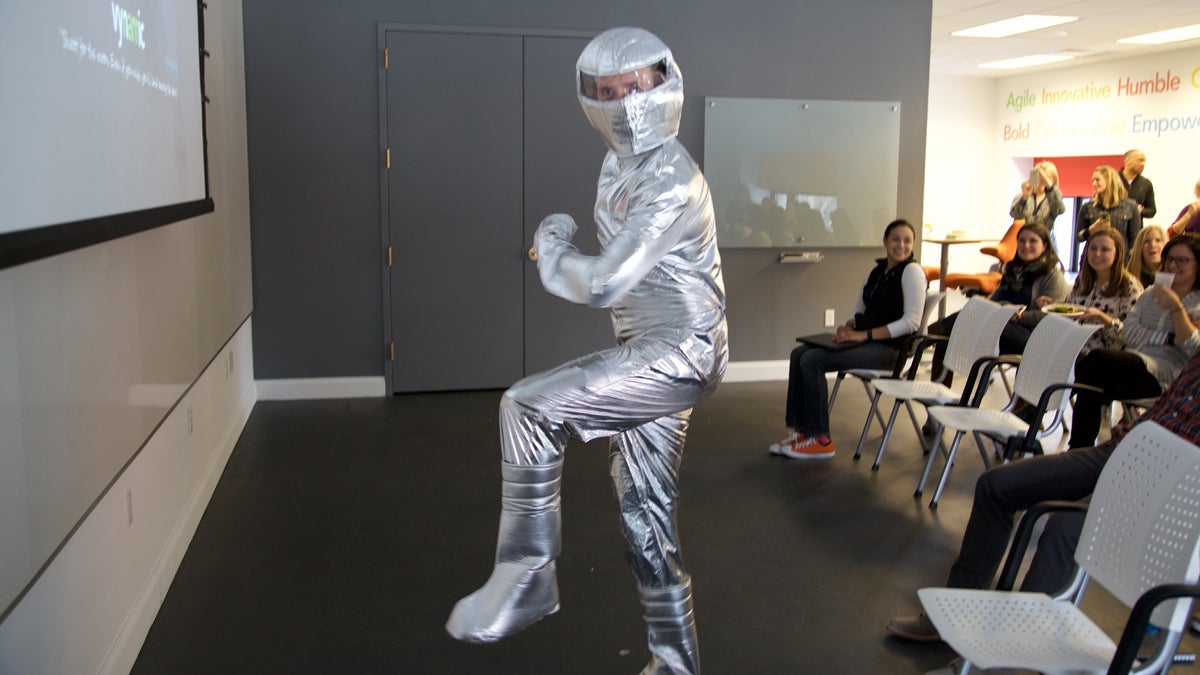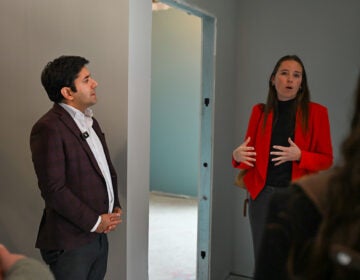Letting employees learn and grow as they want, not as the company wants them to

To mark the rollout of Vynamic's Moonshot program
Rather than training employees to be more like a company model, Philadelphia health care management consultancy Vynamic helps employees be more like, well, themselves.
“Shoot for the moon. Even if you miss, you’ll land among the stars.”
That statement by Norman Vincent Peale, author of “The Power of Positive Thinking,” has inspired many entrepreneurs. Steve McIlwain is one of them. He heads up a new development program for Vynamic, a health care industry management consultancy in Philadelphia.
Recognized as among the healthiest workplace cultures by Philly Mag and the Muse, Vynamic sports a range of enviable perks, including a “zzzMail policy,” which means, he says, that “employees are to refrain from sending emails to other employees between 10 p.m. and 6 a.m. Monday through Friday, all day Saturday and Sunday, and all Vynamic holidays.”
But as if zzzMail and a well-stocked healthy kitchen weren’t enough, last fall McIlwain and his strategic-thinking colleagues came up with yet another angle on employee development. They inverted the usual centralized program that trains employees to be more like a company model. Instead, McIlwain and his pals went the opposite direction and came up with a program that helps employees be more like, well, themselves.
“It’s a very open culture for feedback at Vynamic,” McIlwain says. “And we got a lot feedback for a more holistic approach to special growth [for employees]. So we thought about how to better enable employees to grow in the way they want to.”
It’s a foundational belief at Vynamic that what’s good for the team member is good for the company, McIlwain says. If they’re inspired and happy, it makes Vynamic a better place.
They came up with a program they called “Moonshot,” after Peale.
“We encouraged people to think of a professional goal with an uncertain probability of success yet daringly exciting to them,” McIlwain says. The program invites employees to imagine what a first step in the direction would look like regardless of what the outcome might be. “The point wasn’t doing what you have to do — it’s doing what you want to do. What’s something people are individually passionate about and wanted to pursue, but weren’t able to?”
That trying something without fearing failure — given how oppressively dominant and ill-defined the idea of success is in our culture — is probably the most unconventional part of the Moonshot program.
That journey part is the most important part of the program, he says. Team members figure out what inspires them. The hope is to shift the mindset around learning and success, and to see how that comes back around to enrich the direction of the company.
Wondering about examples, I started with how he’d seen this at work in his own life.
“I’m a big believer in external influence and perspectives,” says McIlwain. “The best way to grow is to get perspectives that are outside of your organization. On a personal level, I always had in the back of my mind: How can I give back to the company in a different way? How can I gain different perspectives I can bring back to Vynamic? It didn’t fit into my daily time slots, though I felt passionate about it. So that resonated with me. How do we find that inspiration, that driver, outside the day-to-day.”
Other examples include one employee who wanted to become a lecturer at a local university. She wanted to share and engage at an academic level, so this gave her a chance to focus on that networking. Many people’s “moonshots” are philanthropically inclined, with a strong tie to not-for-profits in the city. One wants to become better known for her presence as a speaker and hopes to do a TEDx talk.
“It’s the things hanging in the back of people’s minds,” says McIlwain. “Like, ‘I’m cool with what I’m doing, but I really wish I could do blank.’ What we work on with them is figuring out how to do it in a way that doesn’t mean 20 extra hours a week. We try to make it easy for the team to take the first step and explore more. The step helps them learn about themselves.”
And McIlwain’s particular role in the evolving program? “I serve as the space cadet,” he says. “I coach the team along the way, offering one-on-one or small group conversations. I help people figure out how to get started.”
The year ahead will help this space coach see where the first step of the program will go. “Most companies invest money in developing individuals for their benefit and not necessarily for the individual’s benefit,” he says. “In five years, how cool would it be to be recognized as an organization that lets team members learn and grow as they’d like instead of what the company wanted them to be.”
So the Moonshot program is his own moonshot project?
“Yes, I suppose so,” says McIlwain, laughing.
—
Editor’s note: Due to an editing error, an earlier version of this story suggested that Steve McIlwain heads up Vynamic. He leads the company’s Moonshot development program.
WHYY is your source for fact-based, in-depth journalism and information. As a nonprofit organization, we rely on financial support from readers like you. Please give today.




